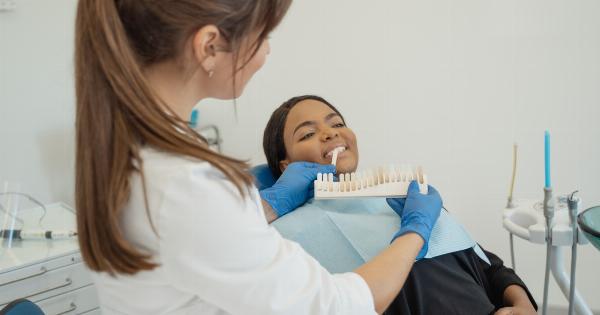Easy bruising can occur for various reasons and is often not a cause for concern. Most people experience occasional bruises due to minor injuries or accidents.
However, when bruising becomes frequent, severe, or occurs without any apparent cause, it may signal an underlying health issue that requires attention. This article explores the causes, symptoms, and potential treatments for easy bruising, helping you understand when it becomes a concern.
Understanding Bruises
A bruise, also known as a contusion, appears when the small blood vessels beneath the skin break or rupture due to trauma. This causes blood to leak into the surrounding tissues, resulting in a visible discoloration.
Initially, bruises appear red or purplish, eventually changing to blue or green as they heal. Over time, they fade to yellow or brown before finally disappearing.
Bruises are often tender to the touch and can be accompanied by swelling or pain, especially if the injury was caused by a direct hit or substantial force.
They usually heal on their own within two to four weeks, with the severity depending on the extent of the trauma.
Normal Causes of Easy Bruising
For most individuals, easy bruising is not a cause for concern and can be attributed to everyday activities or lifestyle factors. Some common causes include:.
Minor Injuries
Accidentally bumping into objects, running into furniture, or falling can result in bruises. These injuries are usually harmless and heal naturally within a few weeks.
Aging Skin
With age, our skin becomes thinner and loses some of its protective cushioning. This makes older adults more susceptible to bruising even with minor bumps or hits.
Medication Side Effects
Some medications, such as blood thinners like aspirin or anticoagulants, can increase the likelihood of bruising. These drugs affect the blood’s clotting mechanisms, making it easier for bruises to form.
Genetic Factors
Some individuals are simply more prone to bruising due to their genetic makeup. Certain conditions or familial traits can make blood vessels fragile and easily susceptible to rupture.
Poor Nutrition
A lack of essential nutrients, particularly vitamin C, vitamin K, and bioflavonoids, can weaken blood vessels and make bruising more common.
When to Seek Medical Attention
While occasional bruises are generally harmless, there are certain signs that suggest easy bruising may be a symptom of an underlying health concern. If you experience any of the following, it is advisable to consult a healthcare professional:.
Unexplained Bruising
If bruises appear without any apparent cause or after minimal trauma, it may indicate a problem with blood clotting or a blood-related disorder.
Frequent or Severe Bruising
If you find that you bruise easily and frequently, especially with minimal contact or trauma, it is essential to investigate the underlying reason.
Excessive Bleeding
If bruises are accompanied by prolonged bleeding from minor cuts, nosebleeds, or gum bleeding, it could be a sign of a bleeding disorder or clotting factor deficiency.
Joint or Muscle Pain
Bruising accompanied by joint pain or muscle weakness could indicate an underlying condition affecting the connective tissues or blood vessels.
Easy Bruising and Other Symptoms
If easy bruising is accompanied by other symptoms like fatigue, dizziness, shortness of breath, or frequent infections, it may indicate a more systemic issue.
Underlying Health Conditions
Easy bruising can sometimes be a symptom of an underlying health condition. These conditions may affect blood clotting or weaken blood vessels, making bruising more prevalent. Some potential causes include:.
Thrombocytopenia
Thrombocytopenia is a condition characterized by a low platelet count, which affects blood clotting. In individuals with this condition, even minor trauma can lead to significant bruising and prolonged bleeding.
Hemophilia
Hemophilia is a genetic disorder that impairs the blood’s ability to clot normally. It primarily affects males and can cause severe, spontaneous bruising and internal bleeding.
Leukemia
Leukemia is a type of cancer that affects the blood and bone marrow, leading to abnormal blood cell production. Bruising can occur due to low platelet counts or abnormal clotting mechanisms caused by leukemia.
Autoimmune Diseases
Conditions such as Lupus and Rheumatoid Arthritis can cause inflammation and damage to blood vessels or interfere with blood clotting mechanisms, leading to increased bruising.
Liver Disease
Problems with liver function can impair the production of clotting factors, leading to easy bruising and prolonged bleeding.
Vitamin Deficiencies
A deficiency in vitamin C, vitamin K, or bioflavonoids can weaken blood vessels and make bruising more likely.
Diagnosis and Treatment
If you are concerned about your easy bruising, it is essential to consult a healthcare professional. They will review your medical history, perform a physical examination, and may order additional tests to determine the underlying cause.
Some common diagnostic tests include:.
Complete Blood Count (CBC)
A CBC helps evaluate the levels of different blood cells, including platelets, which are crucial for blood clotting.
Blood Clotting Tests
Tests such as Prothrombin Time (PT), Activated Partial Thromboplastin Time (aPTT), and INR measure blood clotting time and assess clotting factors’ functioning.
Bone Marrow Biopsy
A bone marrow biopsy involves collecting a sample of bone marrow tissue to examine blood cell production and detect any abnormalities.
Liver Function Tests
These tests assess how well the liver is functioning by measuring levels of enzymes and proteins involved in blood clotting.
The treatment for easy bruising depends on the underlying cause. It may involve lifestyle modifications, dietary changes, or medication, depending on the specific condition diagnosed. For example:.
Minimizing Trauma
Avoiding accidental injuries or falls can help reduce bruising. Implementing safety measures at home or modifying the environment can be beneficial, especially for older adults.
Medication Adjustments
Switching or adjusting medications, especially those that affect blood clotting, can help minimize bruising risks. However, any changes should be made under medical supervision.
Supplements or Dietary Changes
If a vitamin deficiency is causing easy bruising, the healthcare provider may recommend supplements or dietary changes to restore nutrient levels and strengthen blood vessels.
Treatment of Underlying Conditions
Addressing the underlying health condition causing the easy bruising is crucial. This may involve medication, specialized treatments, or managing the symptoms associated with the specific condition.
When to Consult a Doctor
If you are experiencing easy bruising that concerns you or if it is accompanied by any of the symptoms mentioned earlier, it is essential to consult a healthcare professional.
They can evaluate your specific situation, provide an accurate diagnosis, and recommend appropriate treatment options.



























